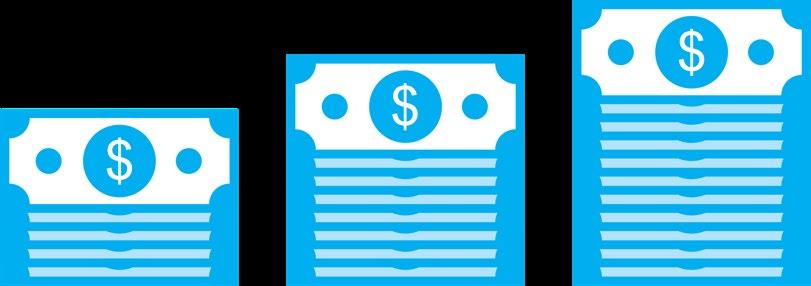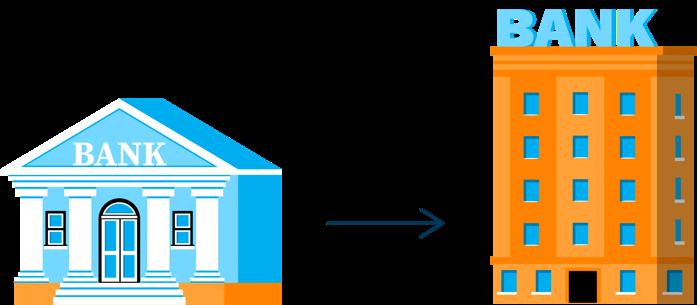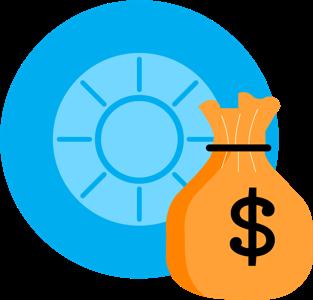Things To Consider When Buying a Home


















If you're thinking about buying a home, chances are you’ve got mortgage rates on your mind. You’ve heard they impact how much you can afford in your monthly mortgage payment, and you want to make sure you’re factoring that in as you plan your move. But, it can feel a bit overwhelming to keep track of it all. Here's what you need to know.
Rates have been volatile – that means they’re bouncing around a bit. And, you may be wondering, why? The answer is complicated because rates are affected by so many factors.
Things like what’s happening in the broader economy and the job market, the current inflation rate, decisions made by the Federal Reserve, geopolitical uncertainty, and more have an impact. Lately, all of those factors have come into play, and it’s caused the volatility we’ve seen.
As Odeta Kushi, Deputy Chief Economist at First American, explains:
“Ongoing inflation deceleration, a slowing economy and even geopolitical uncertainty can contribute to lower mortgage rates. On the other hand, data that signals upside risk to inflation may result in higher rates.”
While you could drill down into each of those things to really understand how they impact rates, that would be a lot of work. Instead of spending your time on that, lean on the pros.
They coach people through market conditions all the time. They’ll focus on giving you a quick summary of any broader trends up or down, what experts say lays ahead, and how all of that impacts you. Take this chart as an example.
It gives you an idea of how mortgage rates impact your monthly payment when you buy a home. Imagine being able to make a payment between $2,500 and $2,600 work for your budget (principal and interest only). The green part in the chart shows payments in that range or lower based on varying mortgage rates (see chart below):
Mortgage Payment (Principal and Interest)
Consult your l icensed Mortgage Advisor for current rates.
Source: Mortgagecalculator.net
As you can see, even a small shift in rates can impact the loan amount you can afford if you want to stay in that target budget. It’s tools and visuals like these that take everything that’s happening and show what it actually means for you. And only a pro has the knowledge and expertise needed to guide you through them.
You don’t need to be an expert on real estate or mortgage rates, you just need to have someone by your side who is. Let’s connect to talk about your housing goals.

If you’re in a financial position to do so and ready to stay put for at least a few years, buying a house is totally worth it. You’ll gain stability, build equity and retain a sense of ownership and control, rather than being at the whim of a landlord.
- Bankrate


Are you wondering if it makes sense to buy a home right now? While today’s mortgage rates might seem a bit intimidating, here are two reasons why it still may be a good time to become a homeowner.
There’s been some confusion over the past year or so about which way home prices are headed. Make no mistake, nationally they’re still going up. In fact, over the long-term, home prices almost always go up (see graph below):
Average Sales Price of Houses Sold in the United States
Based on the chart, you can see the overall trend in home prices has climbed steadily for the past 60 years. There was an exception during the 2008 housing crash when prices didn't follow the normal pattern, but generally, home values keep rising.
This is a big reason why buying a home can be better than renting. As prices go up and you pay down your mortgage, you build equity. Over time, this growing equity can really increase your net worth.
Here’s another reason you may want to think about buying a home instead of renting – rent just keeps going up over the years. Sure, it might be cheaper to rent right now in some areas, but every time you renew your lease or sign a new one, you’re likely to feel the squeeze of your rent getting higher. According to data from iProperty Management, rent has been going up pretty consistently for the last 60 years, too (see graph below):
Median Monthly Rent in the United States (1960–2023)
Source: iProperty
So how do you escape the cycle of rising rents? Buying a home with a fixed-rate mortgage helps you stabilize your housing costs and say goodbye to those annoying rent increases. That kind of stability is a big deal.
Your housing payments are like an investment, and you've got a decision to make. Do you want to invest in yourself or keep paying your landlord?
When you own your home, you're investing in your own future. And even when renting is cheaper, that money you pay every month is gone for good. As Dr. Jessica Lautz, Deputy Chief Economist and VP of Research at the National Association of Realtors (NAR), states:
“If a homebuyer is financially stable, able to manage monthly mortgage costs and can handle the associated household maintenance expenses, then it makes sense to purchase a home.”
When it comes down to it, buying a home offers more benefits than renting, even when mortgage rates are high. If you want to avoid increasing rents and take advantage of long-term home price appreciation, let’s connect to go over your options.
If you’re thinking about buying a home this year, be sure to consider the long-term financial benefits of homeownership.
Equity is the current value of your home minus what you still owe on your loan. It goes up when:
• You pay down your loan
• Home prices appreciate

Here’s a look at how just the home price appreciation piece can increase your wealth over time.
Since Q1 1991, Q1 2024



“A monthly mortgage payment is often considered a forced savings account that helps homeowners build a net worth about 40 times higher than that of a renter.”
- Lawrence Yun, Chief Economist, NAR

One of the biggest hurdles buyers have faced over the past few years has been a lack of homes available for sale. But that’s starting to change.
The graph below uses data from Realtor.com to show there are more homes on the market in 2024 than there have been in any of the past several years (2021-2023):
Since 2017, April of Each Year
Source: Realtor.com
So, is finding a home easier? The answer is yes, and no. On the one hand, inventory is up over the past few years. That means you’ll likely have more options to choose from as you search for your next home.
But, at the same time, the graph above also shows there are still significantly fewer homes for sale than there’d usually be in a more normal, pre-pandemic market. And that deficit isn’t going to be reversed overnight.
To help you explore the growing list of choices you have now, let’s connect. That way you have a pro who can really help you understand the inventory situation where you want to buy. We’ll go over some handy tips that have helped other buyers in our area deal with ongoing low housing supply.

If you’re looking to buy a home, you need to get pre-approved to help figure out your numbers and show sellers you’re serious. Let’s break down what it is and why it’s important if you’re looking to buy a home this year.

Freddie Mac explains it like this:
“A pre-approval is an indication from your lender that they are willing to lend you a certain amount of money to buy your future home . . Keep in mind that the loan amount in the pre-approval letter is the lender’s maximum offer. Ultimately, you should only borrow an amount you are comfortable repaying.”
Now, that last piece is especially important with the current affordability challenges. Getting a good idea of what you can borrow helps you really wrap your head around the financial side of things. It doesn’t mean you should borrow the full amount. It just tells you what you can borrow.
As part of the homebuying process, a lender looks at your finances to determine what they’re willing to loan you. According to Investopedia, this includes things like your W-2, tax returns, credit score, bank statements, and more. From there, they’ll give you a pre-approval letter to help you know how much money you can borrow.
This sets you up to make an informed decision about your numbers. That way you’re able to tailor your home search to what you’re comfortable with budgetwise and can act fast when you find a home you love.
If you want to buy a home, there’s another reason you’re going to want to be sure you’re working with a trusted lender to make this a priority.
While more homes are being listed for sale, the overall number of available homes is still below the norm. That means there aren’t enough homes for sale for everyone who wants to buy one. The imbalance of more demand than supply creates a bit of a tug-of-war for you.
Because of this, you’ll likely find you have to put up with competition from other buyers. But pre-approval can help with that too.
Pre-approval shows sellers you mean business because you’ve already undergone a credit and financial check. As Greg McBride, Chief Financial Analyst at Bankrate, says:
“Preapproval carries more weight because it means lenders have actually done more than a cursory review of your credit and your finances, but have instead reviewed your pay stubs, tax returns and bank statements. A preapproval means you’ve cleared the hurdles necessary to be approved for a mortgage up to a certain dollar amount.”
Sellers love this because that makes it more likely the sale will move forward without unexpected delays or issues. And if you may be competing with another buyer to land your dream home, why wouldn’t you do this to help stack the deck in your favor?
If you’re looking to buy a home this season, know that getting pre-approved is going to be a key piece of the puzzle. With more buyers coming back to the market, this can help you make a strong offer that stands out from the crowd.

Don’t change bank accounts.

Don’t deposit cash into your bank accounts before speaking with your bank or lender.
Don’t make any large purchases.
Consistency is the name of the game after applying for a mortgage. Be sure to discuss any changes in income, assets, or credit with your lender, so you don’t jeopardize your application.
Don’t apply for new credit or close any credit accounts.

Don’t co-sign other loans for anyone.


The best plan is to fully disclose and discuss your intentions with your lender before you do anything financial in nature.

It's important to know today’s market is competitive in many areas because the number of homes for sale is still low – and that’s leading to multiple-offer scenarios.
Rely on a real estate agent who can support your goals. As PODS notes:
“Making an offer on a home without an agent is certainly possible, but having a pro by your side gives you a massive advantage in figuring out what to offer on a house.“
Agents are local market experts. They know what’s worked for other buyers in your area and what sellers may be looking for. That advice can be game changing when you’re deciding what offer to bring to the table.
Knowing your numbers is even more important right now. The best way to understand your budget is to work with a lender so you can get pre-approved for a home loan. Doing so helps you be more financially confident and shows sellers you’re serious. That gives you a competitive edge. As Investopedia says:
“. . . sellers have an advantage because of intense buyer demand and a limited number of homes for sale; they may be less likely to consider offers without pre-approval letters.“

It’s only natural to want the best deal you can get on a home, especially when affordability is tight. However, submitting an offer that’s too low does have some risks. You don’t want to make an offer that’ll be tossed out as soon as it’s received just to see if it sticks. As Realtor.com explains:
“. . . an offer price that’s significantly lower than the listing price, is often rejected by sellers who feel insulted . . . if a seller is offended by a buyer or isn’t taking the buyer seriously, there’s not much you, or the real estate agent, can do.”
The expertise your agent brings to this part of the process will help you stay competitive and find a price that’s fair to you and the seller.
After you submit your offer, the seller may decide to counter it. When negotiating, it’s smart to understand what matters to the seller. Being as flexible as you can on things like moving dates can make your offer more attractive.
Your real estate agent is your partner in navigating these details. Trust them to lead you through negotiations and help you figure out the best plan. As an article from the National Association of Realtors (NAR) explains:
“There are many factors up for discussion in any real estate transaction—from price to repairs to possession date. A real estate professional who’s representing you will look at the transaction from your perspective, helping you negotiate a purchase agreement that meets your needs . . .”
With inventory still low overall, you want to come in with a strong offer. Let's talk so you can have an expert on your team to help you bring your best offer to the table.

If you’ve decided you’re ready to buy, chances are you’re trying to figure out what to do first. It can feel a bit overwhelming to know where to start, but the good news is you don’t have to navigate all of that alone.
When it comes to buying a home, expert advice from a trusted real estate agent is priceless, now more than ever. And here’s why.
A real estate agent does a lot more than you may realize.
Your agent is the person who will guide you through every step when buying a home and look out for your best interests along the way. They smooth out a complex process and take away the bulk of the stress of what’s likely your largest purchase ever. And that’s exactly what you want and deserve.
This is at least a part of the reason why a recent survey from Bright MLS found an overwhelming majority of people agree an agent is a key part of the homebuying process (see visual below):
Of respondents agree "It would be very stressful to navigate the home buying process without a real estate agent or broker.”
Of respondents believe "A real estate agent or broker is an essential, trusted advisor for a homebuyer."
Source: Bright MLS
To give you a better idea of just a few of the top ways agents add value, check out this list.
1. Deliver Industry Expertise: The right agent – the professional – will coach you through everything from start to finish. With professional training and expertise, agents know the ins and outs of the buying process. And in today’s complex market, the way real estate transactions are executed is constantly changing, so having the best advice on your side is essential.
2. Provide Expert Local Knowledge: In a world that’s powered by data, a great agent can clarify what it all means, separate fact from fiction, and help you understand how current market trends apply to your unique search. From how quickly homes are selling to the latest listings you don’t want to miss, they can explain what’s happening in your specific local market so you can make a confident decision.
3. Explain Pricing and Market Value: Agents help you understand the latest pricing trends in your area. What’s a home valued at in your market? What should you think about when you’re making an offer? Is this a house that might have issues you can’t see on the surface? No one wants to overpay, so having an expert who really gets true market value for individual neighborhoods is priceless. An offer that’s both fair and competitive in today’s housing market is essential, and a local expert knows how to help you hit the mark.
4. Review Contracts and Fine Print: In a fast-moving and heavily regulated process, agents help you make sense of the necessary disclosures and documents, so you know what you’re signing. Having a professional that’s trained to explain the details could make or break your transaction, and is certainly something you don’t want to try to figure out on your own.
5. Bring Negotiation Expertise: From offer to counteroffer and inspection to closing, there are a lot of stakeholders involved in a real estate transaction. Having someone on your side who knows you and the process makes a world of difference. An agent will advocate for you as they work with each party. It’s a big deal, and you need a partner at every turn to land the best possible outcome.
Real estate agents are specialists, educators, and negotiators. They adjust to market changes and keep you informed. And keep in mind, every time you make a big decision in your life, especially a financial one, you need an expert on your side. Expert advice from a trusted professional is priceless.

A good buyer's agent can act as a guide on your homebuying journey. They'll show you properties that fit your criteria, help you craft a competitive offer, negotiate on your behalf and generally provide you with knowledge and support throughout the homebuying process.
- NerdWallet

